
OR

Implementation of Climate Loss and Damage Fund complicated
DUBAI, Nov 29: In the 28th Conference (COP28) of the United Nations Framework Convention on Climate Change, the issue of providing financial support to the damages caused by climate change is going to be the most complicated one.
The issue of progress related to damage and loss will be complicated in UN COP 28, it is said in the position paper prepared by the Nepal government for the conference. Starting from Thursday, this conference will have to approve the agreement and proposal on fund mobilization by the transitional committee formed in Abu Dhabi, UAE last October. Nepal expects that the damage management process proposed by the committee will be approved.
It is stated in Nepal's position paper, ‘we request reliable and sufficient financial support to make effective the finance set up for damage and loss to be approved in UNCOP 28.’
In the proposal made by the transitional committee, it has been agreed that a 26-member independent legally recognized board will be established for the mobilization of funds for the damage fund and the World Bank will operate the interim secretariat for the next four years following the prescribed conditions. Although developed countries are said to contribute to this fund, it will all be voluntary. Although the draft of the decision prepared by the Transitional Committee of Nepal is not satisfactory due to these provisions, the developing countries have agreed to prepare the basis for the operation of the fund immediately and it will help the developing countries including Nepal if they agree on the operation of the loss and damage fund during the Dubai conference.
Likewise, Nepal has given high priority to the issue of climate change and mountain impact.
Nepal emphasizes that welcoming the topic of mountain ecological system and community resilience in the initial agenda of UNCOP 28, Nepal needs to make a cooperation strategy with mountain countries with similar problems to include it in a more important agenda and it is necessary to make necessary preparations for this.
According to a scientific study, the temperature of the Himalayan region is estimated to be 0.3 degrees Celsius to 0.7 degrees Celsius higher than the average temperature of the world in the present and future. According to the Paris Agreement, the world community has agreed not to increase the temperature of the earth by 1.5 degrees Celsius by the end of this century, but it is estimated that the temperature of the Himalayan region will exceed 1.8 degrees Celsius before 2050. Studies have estimated that two-thirds of the snow reserves of the mountains in this region will melt due to high temperature rise.
The effects of high temperature rise, heavy rains, lack of rains, torrential rains, droughts, landslides and floods are increasing every year in Nepal. In the future, the amount of snow in the mountains will decrease and the number of glaciers will increase.
At the COP 28 conference, the discussion on the responsibility to reduce carbon emissions, the review of the implementation of the Paris Agreement, the implementation of climate damage and loss funds, climate finance, technology development, expansion and implementation, climate change and gender relations, climate change and mountain issues are the main issues. .
Nepal has said that due to the indifference of the countries with high carbon emissions and especially the delay and reluctance of the developed countries to provide resources, the global temperature is increasing and the climate crisis is deepening.
In order to expand the carbon emission reduction program as a priority and to limit the global temperature increase to 1.5 degrees Celsius in the context of the continuous increase in the earth's temperature, the visionary and unprecedented contribution of all parties is required, Nepal said in its statement.
Likewise, stating that Nepal needs 21 billion US dollars to implement adaptation priorities by 2030, least developed countries like Nepal and small island developing countries, especially in the Green Climate Fund and other funds, to simplify application processes and remove capacity constraints and improve direct access to climate funds. It is necessary to debate and lobby, Nepal said.
Similarly, according to the agreement reached at COP26 held in Glasgow, Nepal insists that developed countries need to be responsible for the implementation of the declaration that the obligation will be doubled in 2025 compared to the financial obligation fulfilled in 2019 for adaptation, as well as to flow it as a grant.
According to the sixth report of the IPCC, as global greenhouse gas emissions continue to rise and the global average temperature rises rapidly to close to 1.5 degrees Celsius, massive reductions in greenhouse gas emissions will reach their peak before 2025, and by 2030 will cut emissions by more than half compared to 2019. And it is necessary to achieve zero carbon emissions by 2050.
In the position paper, according to the proposal of United Arab Emirates chaired by COP 28, it is necessary to agree on the global goal of tripling the renewable energy production capacity and doubling the energy efficiency improvement rate.
Regarding climate finance, Nepal will agree to the opinion of the group of least developed countries and other like-minded groups regarding COP 28, keeping in mind its national interest. A financial obligation of 100 billion US dollars per year by 2025 is met by rich countries.
Regarding climate finance, Nepal will agree to the opinion of the group of least developed countries and other like-minded groups regarding COP 28, keeping in mind its national interest. Since it is an important issue that rich countries fulfill their financial obligations of 100 billion US dollars per year until 2025, Nepal wants to ensure that.
Nepal's argument is that the complicated process, slowness, various paper requirements of the existing international financial structures have not only hindered the access of adaptation funds, but the delay caused by not being able to invest in adaptation in time has also caused more crisis and risk. It is necessary to discuss the procedural complexity of the problem in accessing climate finance, the disparity in the distribution of funds and other difficulties with the relevant agencies, Nepal said in the concept paper.
Prime Minister Pushpa Kamal Dahal, the leader of the Nepali team, has arrived in Dubai on Wednesday night to participate in the conference that will start from Thursday. The Prime Minister is preparing to address the high political session at the beginning of the conference. Heads of state or government of 160 countries, including Prime Minister Dahal, are scheduled to address the summit on December 1 and 2. Nepal is doing various programs by setting up its own pavilion for the first time in this conference.
You May Like This
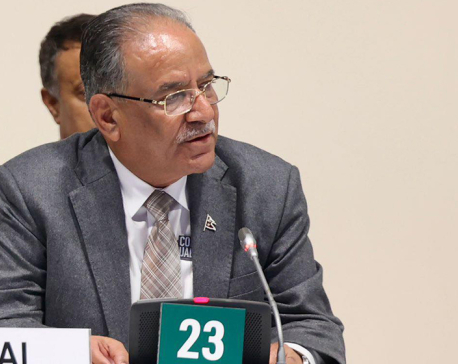
COP-28 should be regarded as opportunity: PM Dahal
KATHMANDU, Dec 2: Prime Minister Pushpa Kamal Dahal has said the UN summit on climate change, COP-28, should be regarded... Read More...
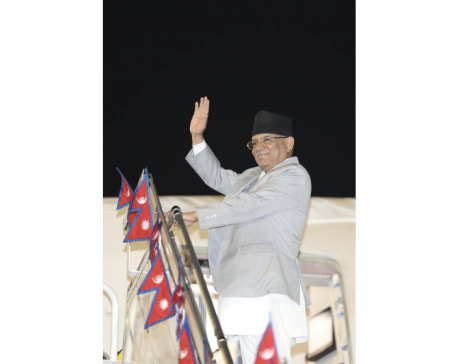
PM Dahal’s Dubai visit sparks chaos: 31 passengers miss flight after abrupt time shift
KATHMANDU, Nov 30: Global Youth Campaigner for Climate Justice Prajwal Bikram Rana was going to Dubai as a participant in... Read More...

Dedicated ministry needed to tackle climate change: Experts
KATHMANDU, Nov 26: With the United Nations Climate Change Conference (COP-28) just around the corner, climate change experts have advocated for ... Read More...
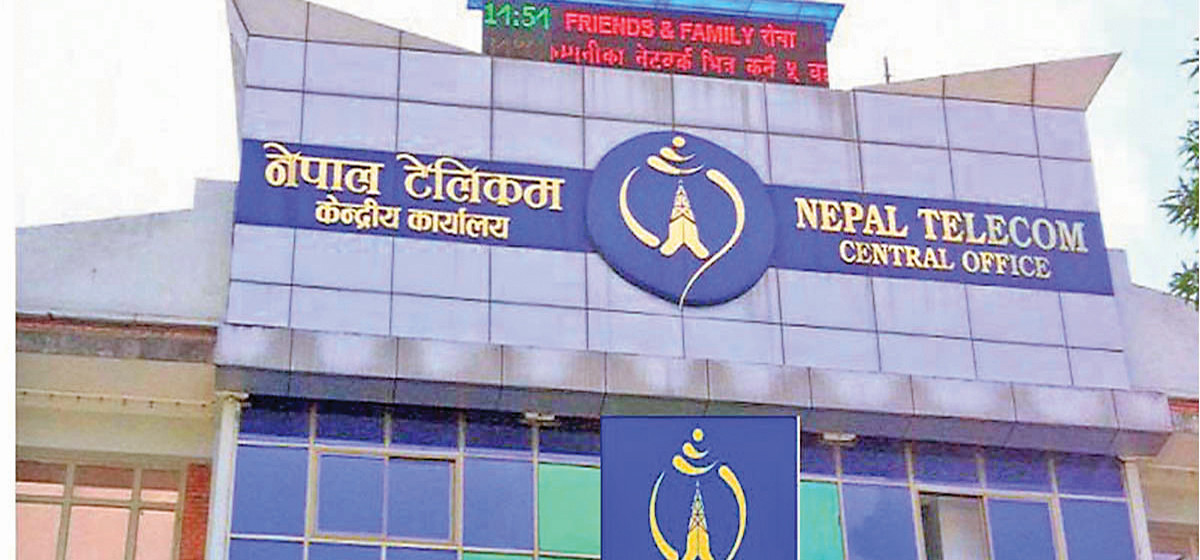
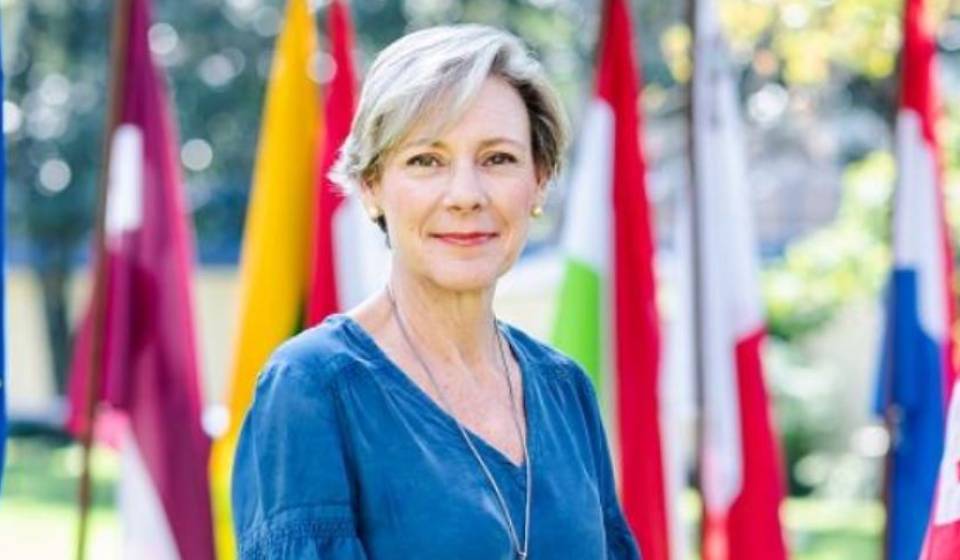

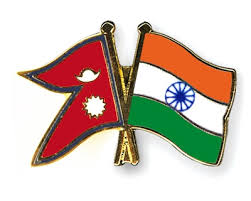
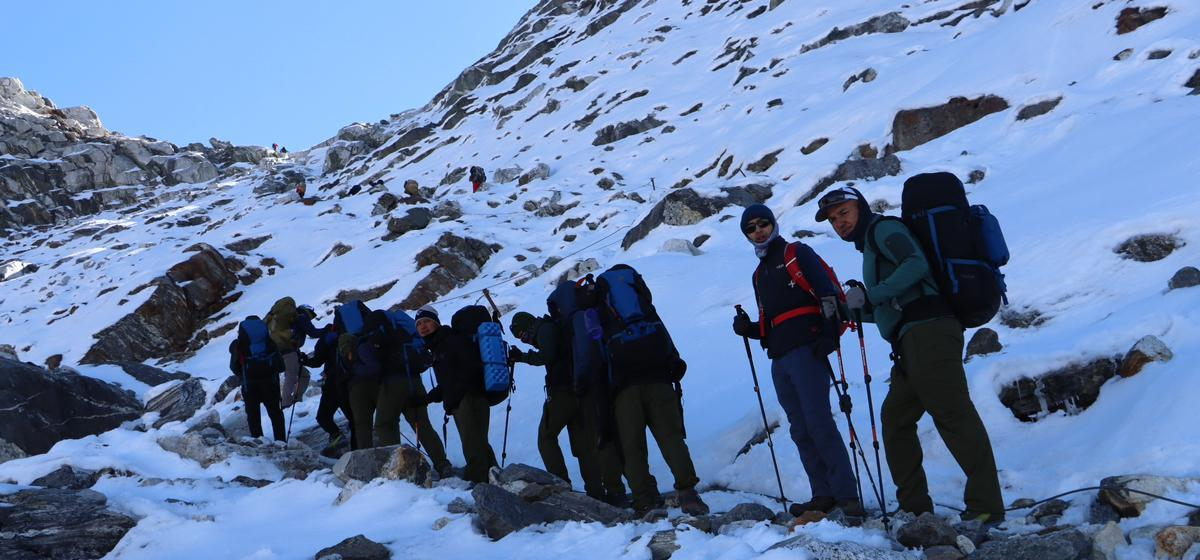

Just In
- Maoist Center Spokesperson Sapkota bats for national consensus
- Karnali CM Kandel calls an all-party meeting to discuss overall development and prosperity of the province
- Deputy Mayor of Nepalgunj Sub-Metropolitan City to stay with JSP
- Ten Sherpa members scale Mt Everest
- I should get chance to speak in parliament: DPM Lamichhane
- Woman arrested with counterfeit Nepali currency in Rangeli
- Sinohydro-Sagarmatha Company appeals struggle committee to settle row
- Car crashes into electricity pole in Kupondole




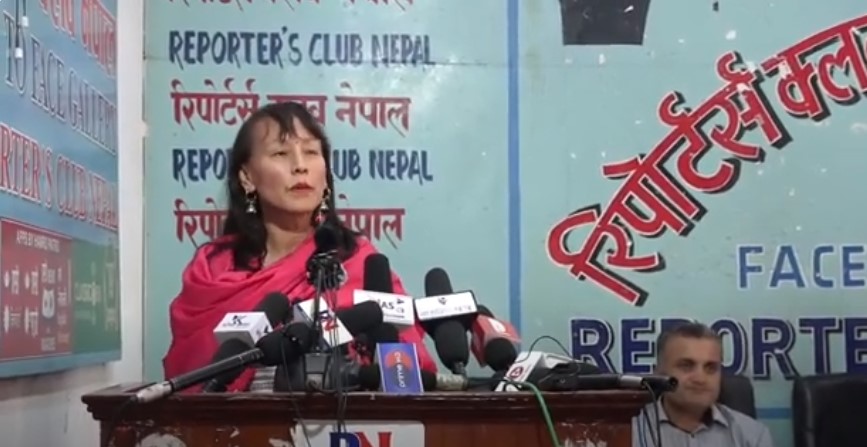
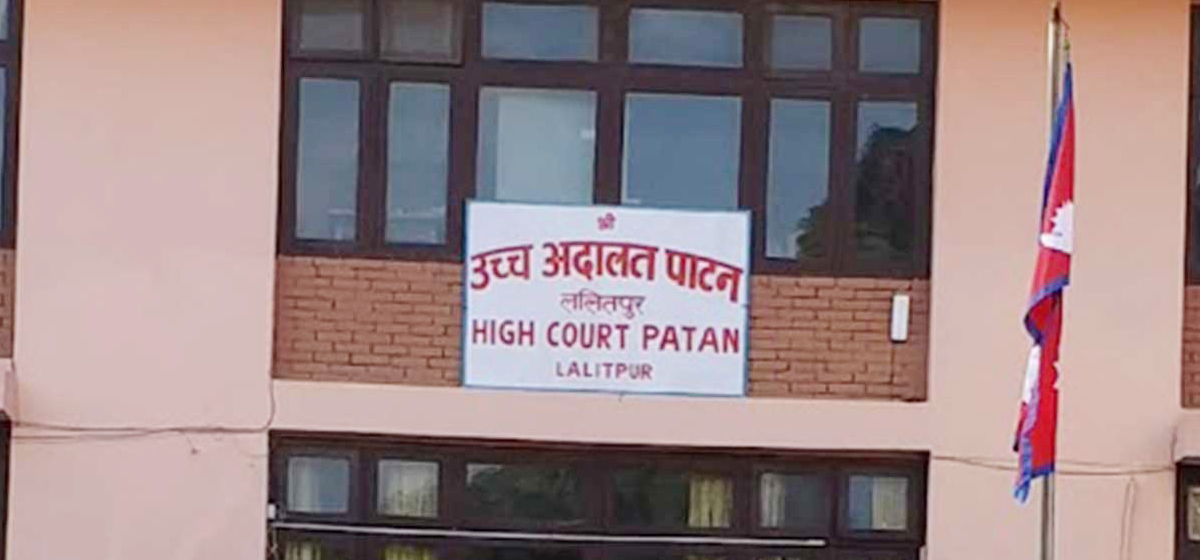

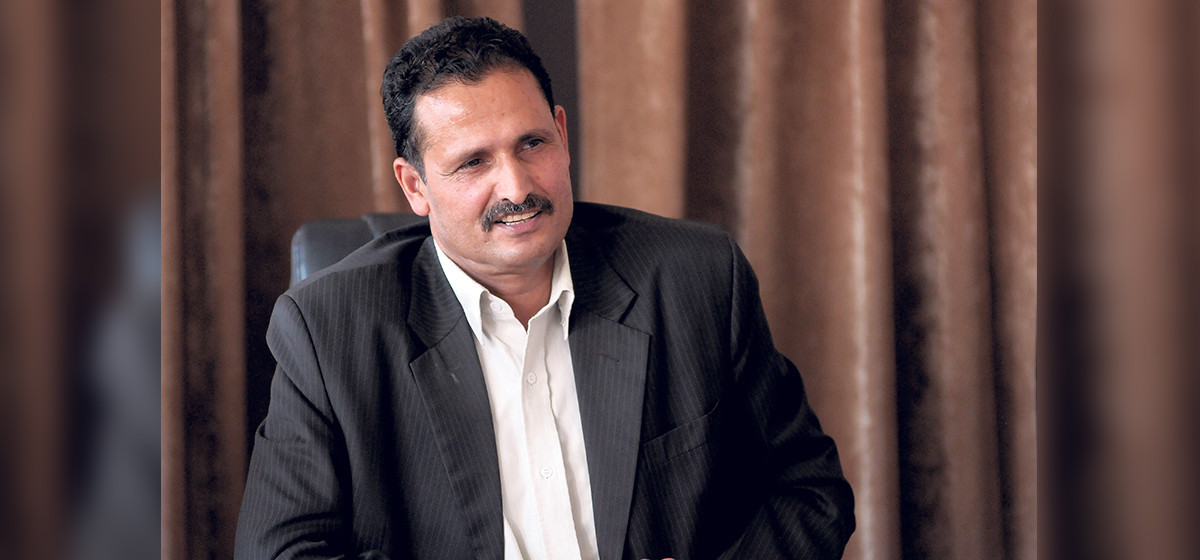



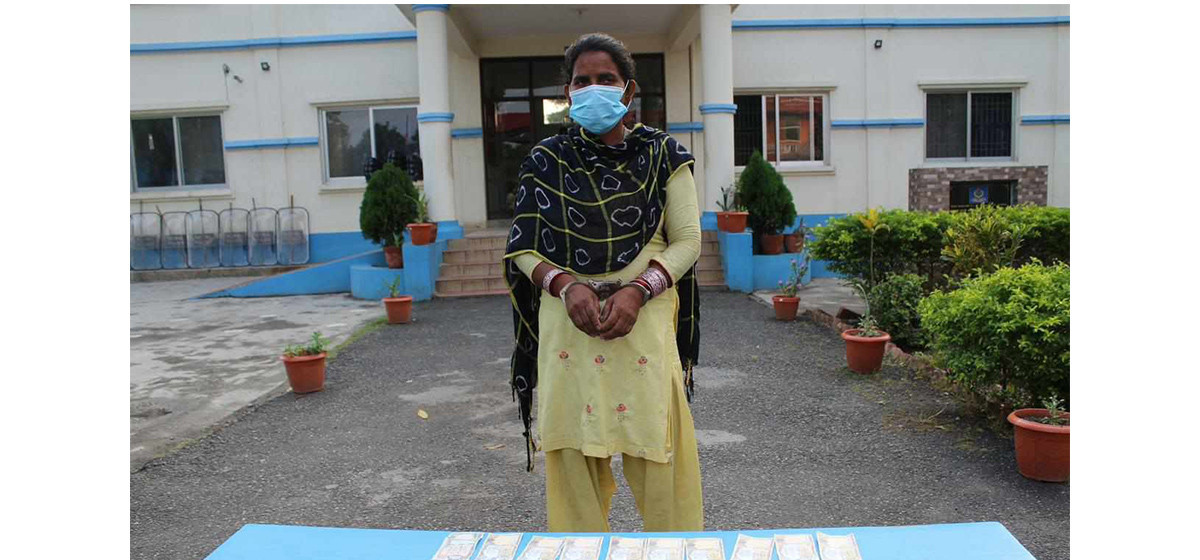
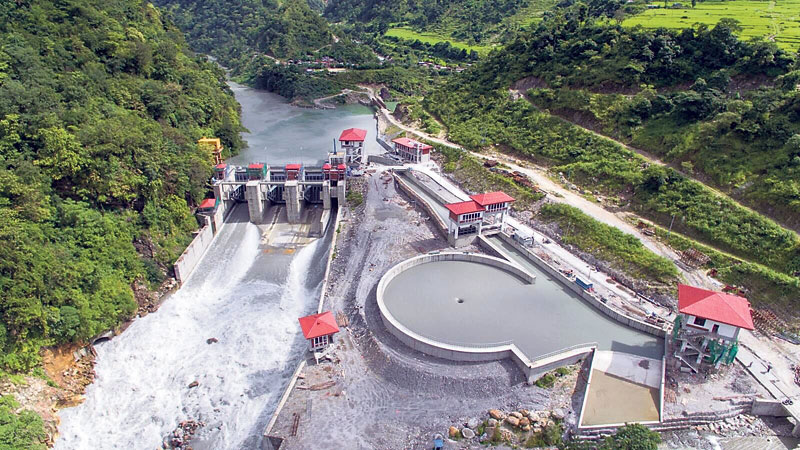
Leave A Comment